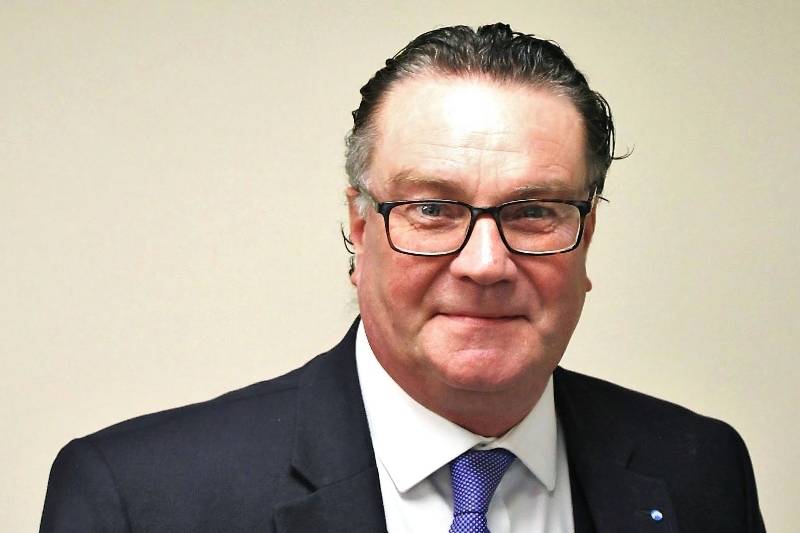LAPV talks to FAUN-Zoeller UK CEO Simon Hyde about the company’s determination to support the drive to net zero.


FAUN-Zoeller UK (FZUK) are fully on board with the decarbonisation agenda. In fact, the municipal vehicle and refuse collection system specialists have been on board since the early 2000s when they developed a diesel-electric hybrid vehicle. But now the company’s chief executive officer, Simon Hyde, has become a great enthusiast for ensuring FZUK continues to play its part in the drive towards net zero.
Mr Hyde was not always convinced by the need for decarbonisation. It was only during the COVID-19 lockdown that he came to accept that fossil fuels were damaging the environment and making the air unbreathable.
‘Personally, if I’m being honest, I was a little bit skeptical,’ he tells LAPV. ‘But when COVID hit, when we were walking outside, you could tell the difference in the air and you thought, “You know, we are actually messing around with mother nature.”’ This realization made him determined to ramp up and make FZUK a force for promoting the decarbonisation agenda in the UK.
FZUK has factories across Europe, Asia, America, and the Pacific Rim where they produce automotive parts, tools, and mobility equipment as well as refuse collection bodies, lifters, and road sweepers. The company didn’t become such an extensive operation without understanding which way the wind was blowing and so over the last few years it has been investing to ensure it can offer clients alternatives to vehicles that are dependent on fossil fuels. They realised that – in Mr Hyde’s words – they ‘could have a competitive edge.’
FZUK’s community outreach was an important factor for reinforcing this realisation. By talking to young people in schools and colleges about the skills that they will need for the future, Mr Hyde has found that the younger generations – those who will be the customers and employees of companies such as FZUK in the future – are conscious of the threat climate change poses. And so, he says, it is essential for businesses to keep up with this generational shift.
‘Every business I talk to is challenged not only by their own net zero committee,’ he explains, ‘but also businesses are not going to survive if they don’t adhere to the decarbonisation agenda. It’s as simple as that.’ Mr Hyde has become a keen advocate for hydrogen as the fuel of the future.
‘For cars and small vans electricity is fine. The demand is low and energy is low. But when you get above 450kwh usage a day it can’t cope. You’ll need a new technology.
‘That’s where hydrogen fuel cells kick in. With hydrogen fuel cells, you can pump in hydrogen and it takes about five minutes to fuel up and you’re away. Charging overnight isn’t commercially viable, but fueling at a station is. I accept that what needs to mature is the fueling concepts of hydrogen but that is coming together.’
‘I’m not saying hydrogen is everything. We’re technically agnostic as a company,’ he continues. ‘We’re not saying hydrogen is the be all or end all. Rather, we’re saying electricity isn’t either.’
One of the big concerns local authorities have about buying new refuse collection vehicles, particularly those that do not run on diesel, is the initial cost. Fleet decarbonisation is not cheap. However, according to Mr Hyde, councils should be looking at the total cost of ownership rather than the ticket price.
‘We can actually contribute to local authorities’ profit and it really frustrates me as an engineer that people don’t take the offer up,’ he explains. ‘The capital investment for one of these non-diesel trucks is so high that they’re going to have to hit the reset button and really think about how they are going to pick up the waste.
‘If a customer says to me how much is it I just turn around and say you’re asking the wrong company; we don’t want to get involved. What you should be asking is what’s the total cost of ownership with this capital investment. You might be spending twice the cost on capital but you’ve halved your maintenance bill, you’ve halved your fuel bill, and you’ve doubled the life of your product.’
Fleet decarbonisation might not be cheap in the short term. But in the long term, local authorities will find that it is not just the environment they are saving with many of the non-diesel RCVs on the market.
This feature was originally published in the winter issue of LAPV. For a free subscription sign up here.